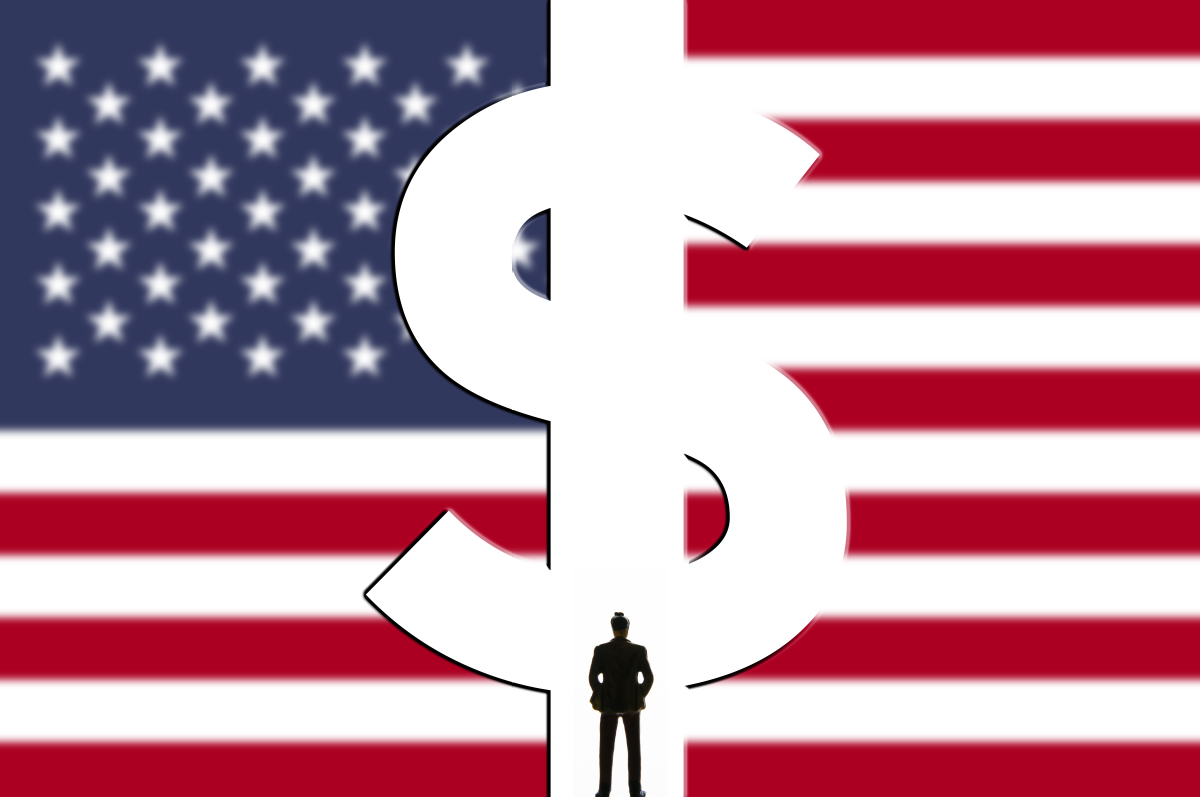US debt hits record as cost to service it rises


With the national debt of the United States now exceeding $31 trillion for the first time amid rising interest rates, the cost of financing that debt becomes a heavier burden for the government.
"The longer-run issue is the question: How will we know when the debt is too high to be sustained?" said Raymond Hill, senior lecturer of finance at the Goizueta School of Business at Emory University, to China Daily.
"I was on a panel with the president of the Atlanta Federal Reserve a few years ago and we both (came to) the same answer to this question: 'We will only know how much is too much when it is too late,'" Hill said.
The gross interest expense on the national debt hit $88.1 billion in August, according to US Treasury data, or $1.06 trillion a year.
Michael Peterson, the chief executive officer of the Peter G. Peterson Foundation, which promotes deficit reduction, told The New York Times. "So many of the concerns we've had about our growing debt path are starting to show themselves as we both grow our debt and grow our rates of interest. Too many people were complacent about our debt path in part because rates were so low."
The federal government spent $3.1 trillion more than it received in 2020, when the COVID-19 pandemic emerged, and it spent $2.8 trillion more than it took in the next year.
"Interest on the national debt is exploding and heading toward what economists refer to as a 'doom loop' — the vicious circle in which the government's borrowing to pay interest generates yet more interest and yet more borrowing," wrote Red Jahncke, president of asset manager Townsend Group International, in a Sept 29 op-ed in The Wall Street Journal.
Higher interest rates could add $1 trillion to what the US government spends on interest this decade, according to Peterson Foundation estimates.
That is in addition to the record $8.1 trillion in debt costs that the Congressional Budget Office (CBO) projected in May. Interest outlays could exceed what the United States spends on defense by 2029, if interest rates on public debt rise to be just one percentage point higher than what the CBO estimated, the Times reported.
The Federal Reserve, which cut interest rates to near zero during the pandemic, has since begun raising them to stem inflation, which at 8-9 percent is hovering around 40-year highs.
The Fed's target interest rate is now between 3 and 3.25 percent, but its most recent projections are for a rise to 4.6 percent by the end of 2023.
"The global financial crisis of 2008 was supposed to have taught the world the dangers of excessive debt. But borrowing has shot up since then," wrote Reuters Breaking Views columnist Hugo Dixon on Tuesday in a piece titled "The end of cheap money reveals global debt problem".
"The debt of governments, companies and households was 195 percent of global GDP in 2007, according to the International Monetary Fund. By the end of 2020 it had reached 256 percent.
"These debt mountains are harder to bear because interest rates are rising to stamp out inflation, the COVID-19 pandemic and the energy crisis have clobbered growth, and investors are more averse to risk," Dixon wrote.
All of this is happening as the US dollar surges relative to other currencies.
Dixon said that "the strong greenback makes life harder for almost everybody else. It is pushing up inflation in the rest of the world and adding to the distress of those that have borrowed in dollars. It's more than 50 years since the then-US treasury secretary (John Connally) told his counterparts that the 'dollar is our currency but it's your problem'. The adage is relevant again today."
Hill, of Emory University, said that "an idiotic new idea, Modern Monetary Theory (MMT), says we can issue limitless amounts of debt in our currency. This ignores the fact that the dollar is the primary currency for international trade and savings. The instant (that) foreigners believe that the US cannot service its debt, we will have a huge financial crisis."
Hill said that MMT advocates would respond with "no problem".
"'We just pay the debt by printing more money.' But that creates inflation and, if foreigners think the US will inflate its way out of its debt-service obligations, the same crisis will occur.
"Since the answer to the question 'how much is too much' depends on the world's confidence that the US will act responsibly, we have no way of quantifying 'how much is too much,'" Hill concluded.
The Committee for a Responsible Federal Budget estimates that US President Joe Biden's policies have added $4.8 trillion to deficits since he took office in January 2021. The biggest ticket item was the $1.85 trillion American Rescue Plan Act of 2021, which was largely economic stimulus to states and individuals to counter the pandemic's impact.
"With inflation at a 40-year high and debt headed for record levels, substantial deficit reduction will be needed to put the country on a sustainable fiscal course," the committee said in a Sept 13 release.
Brian Riedl, a senior fellow at the Manhattan Institute, told the Times: "Basically, Washington has engaged in a long-term debt spree and been fortunate to be bailed out by low interest rates up to this point. But the Treasury never locked in those low rates long term, and now rising rates may collide with that escalating debt with horribly expensive results."
Jared Bernstein, a member of the White House Council of Economic Advisers, said in an interview with the Times: "Our budgets have been heavily fiscally responsible, and they build a very compelling architecture toward critical investments and fiscal responsibility. So it would be a mistake to overtorque in reaction to current events."
Maya MacGuineas, president of the Committee for a Responsible Federal Budget, said in a release Monday: "As the end of the year approaches, it is time to remind policymakers that whether to grow the national debt further is within their control. At the very least, they should commit to no further borrowing in 2022 — it cannot be too much to ask that they practice paying for their priorities by abstaining from any new borrowing for just three months. The $31 trillion in debt is a staggering number that should keep them up at night."

































